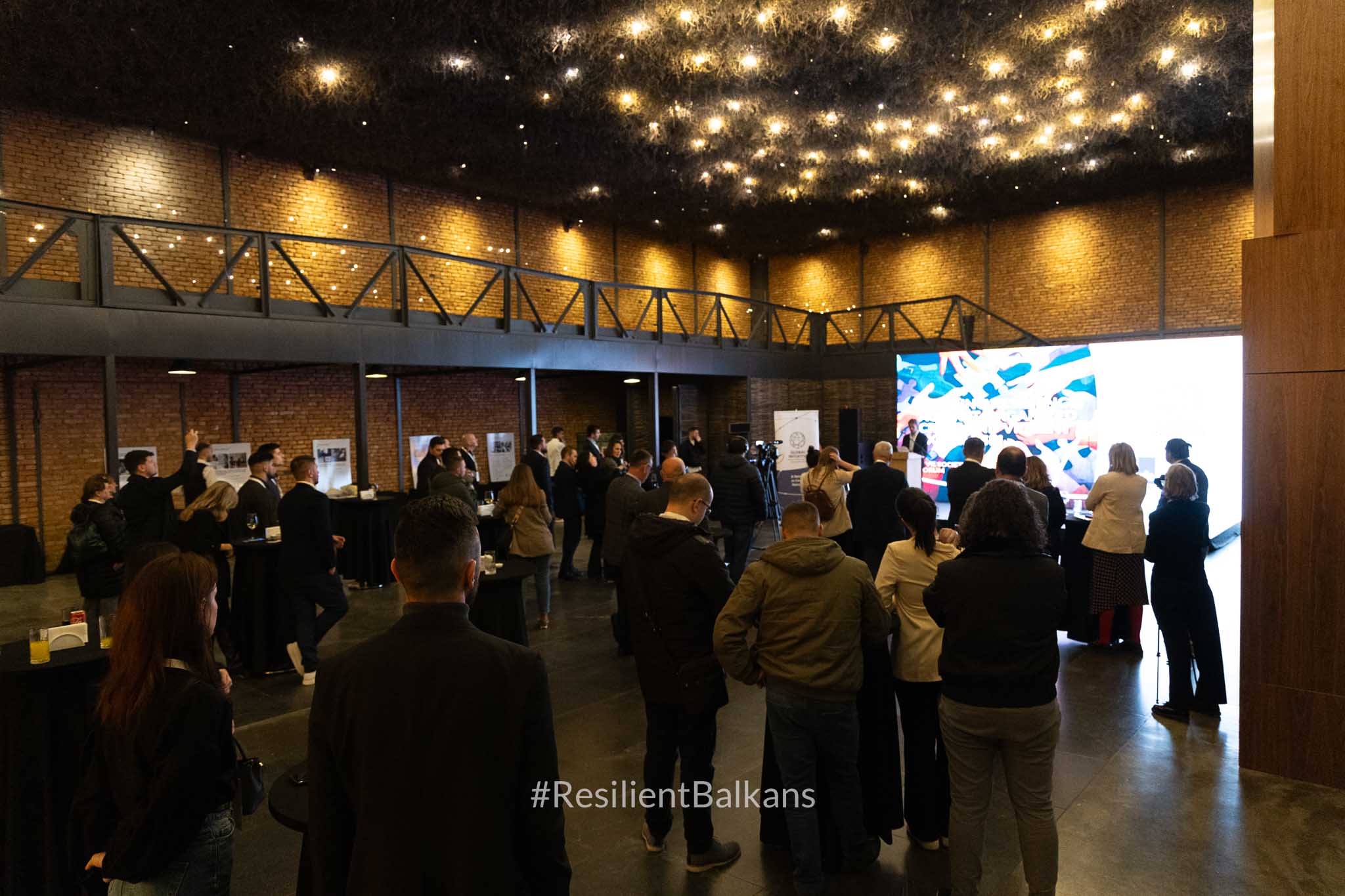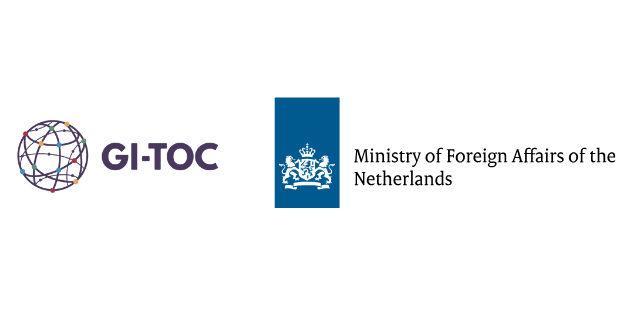Civil society against organized crime and violent extremism in the Western Balkans
Civil Society Forum | #ResilientBalkans | Pristina, Kosovo
19–20 March 2025
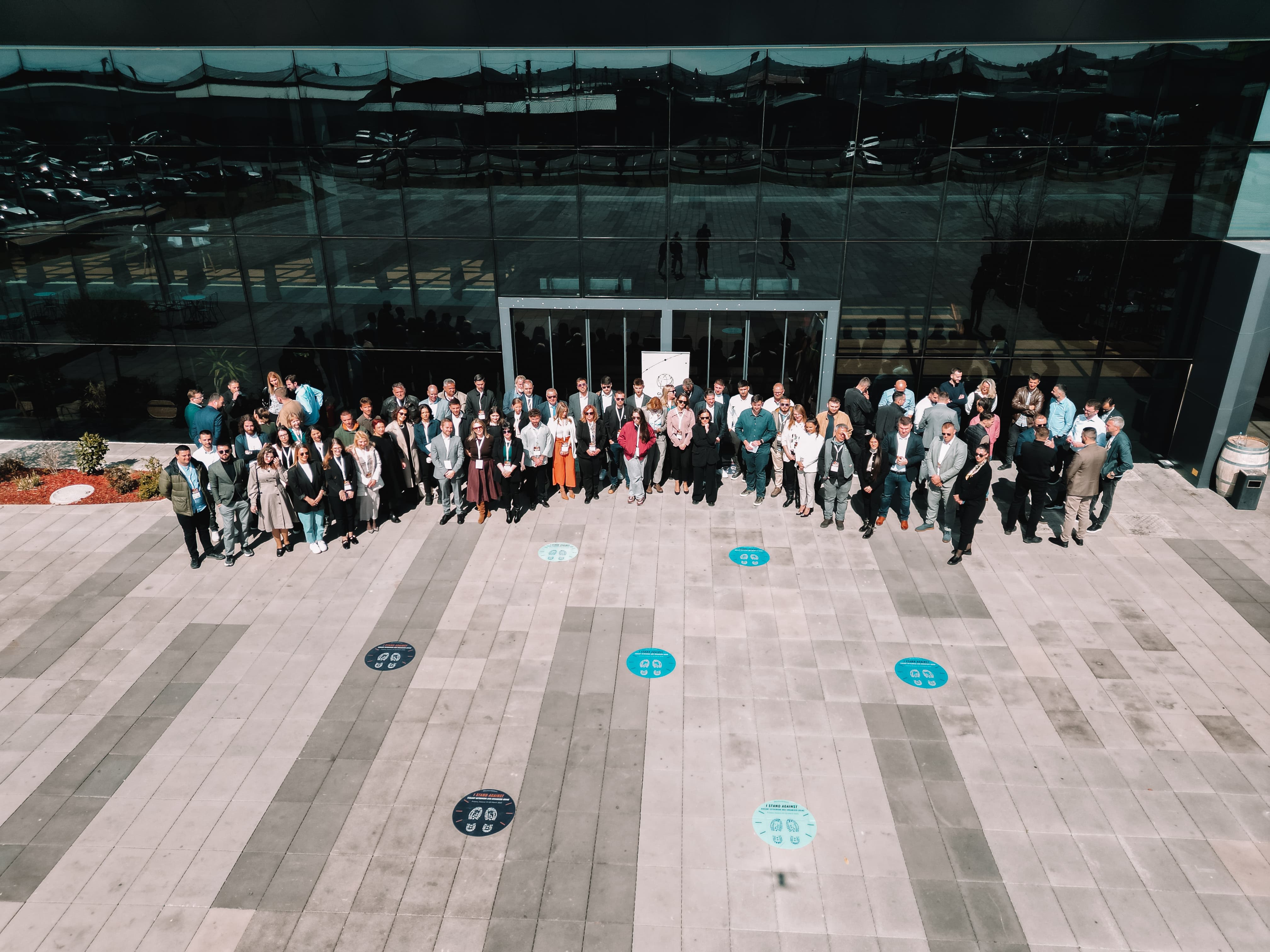

On 19–20 March, the Global Initiative Against Transnational Organized Crime (GI-TOC)'s Observatory of Illicit Economies in South Eastern Europe held its inaugural Civil Society Forum in Pristina, Kosovo.
The forum brought together 100 participants from six Western Balkan countries, each represented by a civil society organization part of the project 'Exploring the nexus between organized crime and violent extremism in the Western Balkans', funded by the Ministry of Foreign Affairs of the Netherlands.
Participants engaged in discussions, workshops, an art exhibition and networking events focused on civil society's resilience to organized crime and violent extremism in the region.
The nexus between organized crime and violent extremism – why it matters
Understanding the links between violent extremism and organized crime is crucial for developing effective security strategies. Addressing this nexus in the Western Balkans requires a comprehensive approach that considers historical, political and social factors. Strengthening law enforcement cooperation and the capacity to track extremism financing, counter radicalization and disrupt criminal networks will be key to enhancing regional and global security.
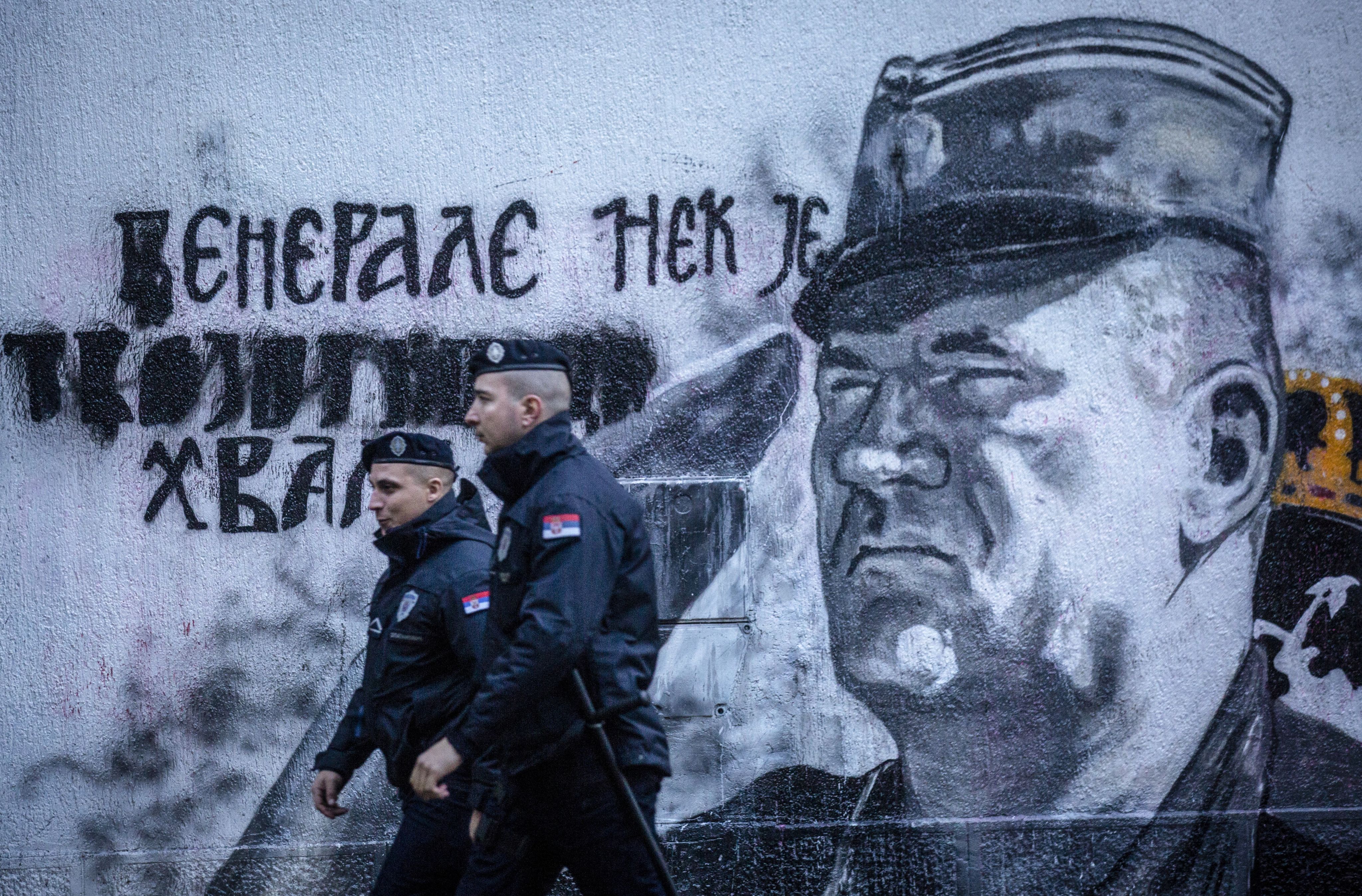

Meet the grantees
Anes, Dijana, Alketa, Andi, Boris and Teodora are the representatives from the six civil society organizations that were supported by the project.
As part of the project, they have implemented activities in their respective countries aimed at strengthening community resilience to violent extremism and organized crime, initiatives that were showcased at the Forum in Pristina.
To find out more about these civil society organizations, visit the link below.
Civil Society Forum: Day 1
The sun warms the streets of Pristina as our team makes its way to the Klan Arena. The air is filled with anticipation – we are about to celebrate resilience and hope in the Western Balkans.
In the Arena, the brick walls catch our attention. We learn that they are silent witnesses to centuries of history, having survived destruction and been carefully rebuilt – a powerful metaphor for our project.
We craft the event's visual narrative with posters, banners and publications, but it is the floor markers we've placed at the entrance that encapsulate our message: 'I stand against organized crime and violent extremism'.
Shortly after, the centerpiece installation arrives: a commissioned artwork by a local artist, visually representing transformation and hope. On each side, two arms hold a blank page with the words 'I stand against,' inviting participants to complete it with their thoughts.
We catch sight of a line of people approaching – the true protagonists of this forum, who bring the determination to promote regional stability and resilience.
The programme begins with Dutch Deputy Ambassador Ronald Goldberg and Observatory Director Fatjona Mejdini delivering opening remarks. The spark is lit: in this space, among ancient bricks and grass-roots art, a new chapter in the fight for a resilient future in the Balkans is about to unfold.
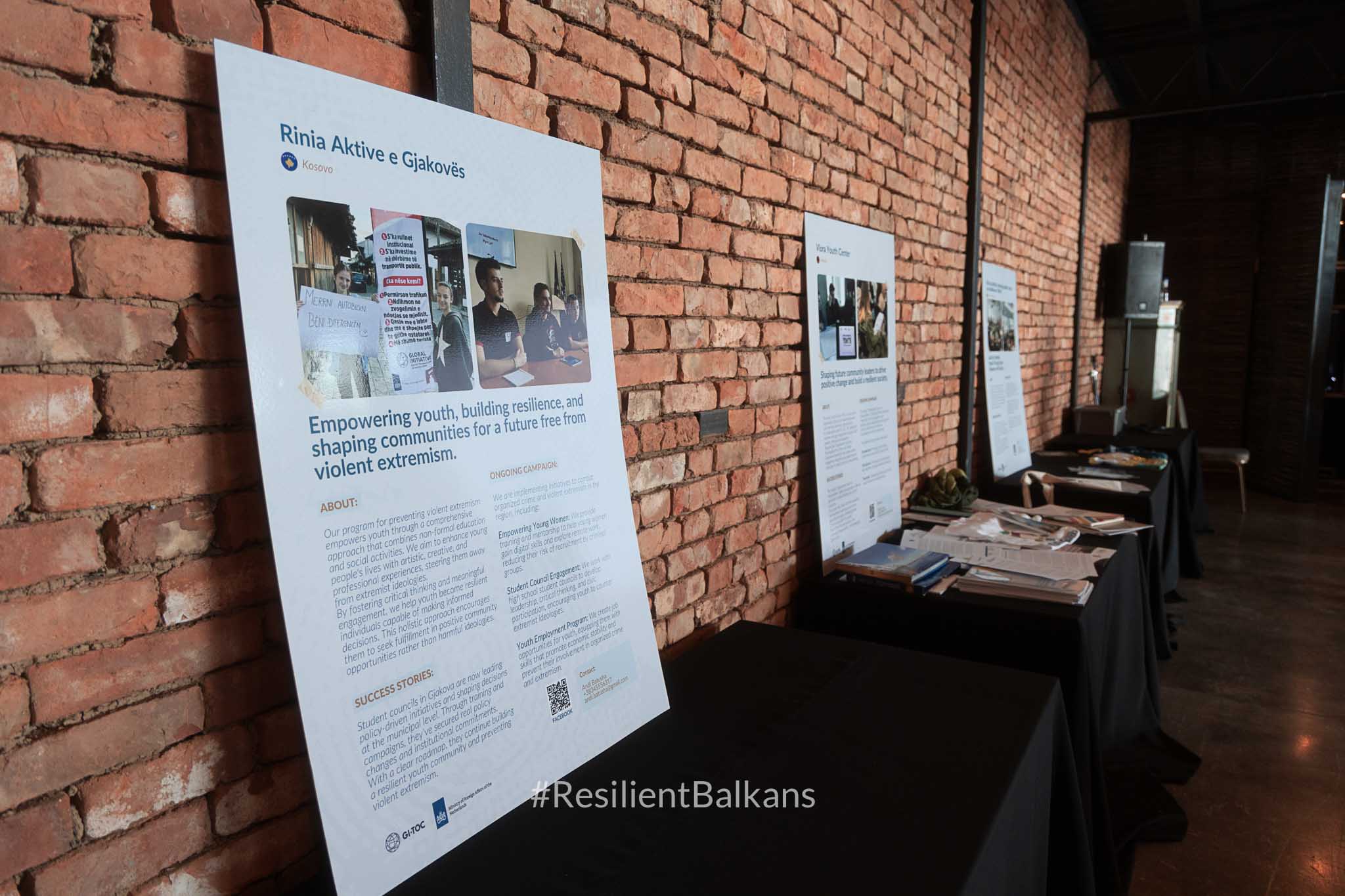
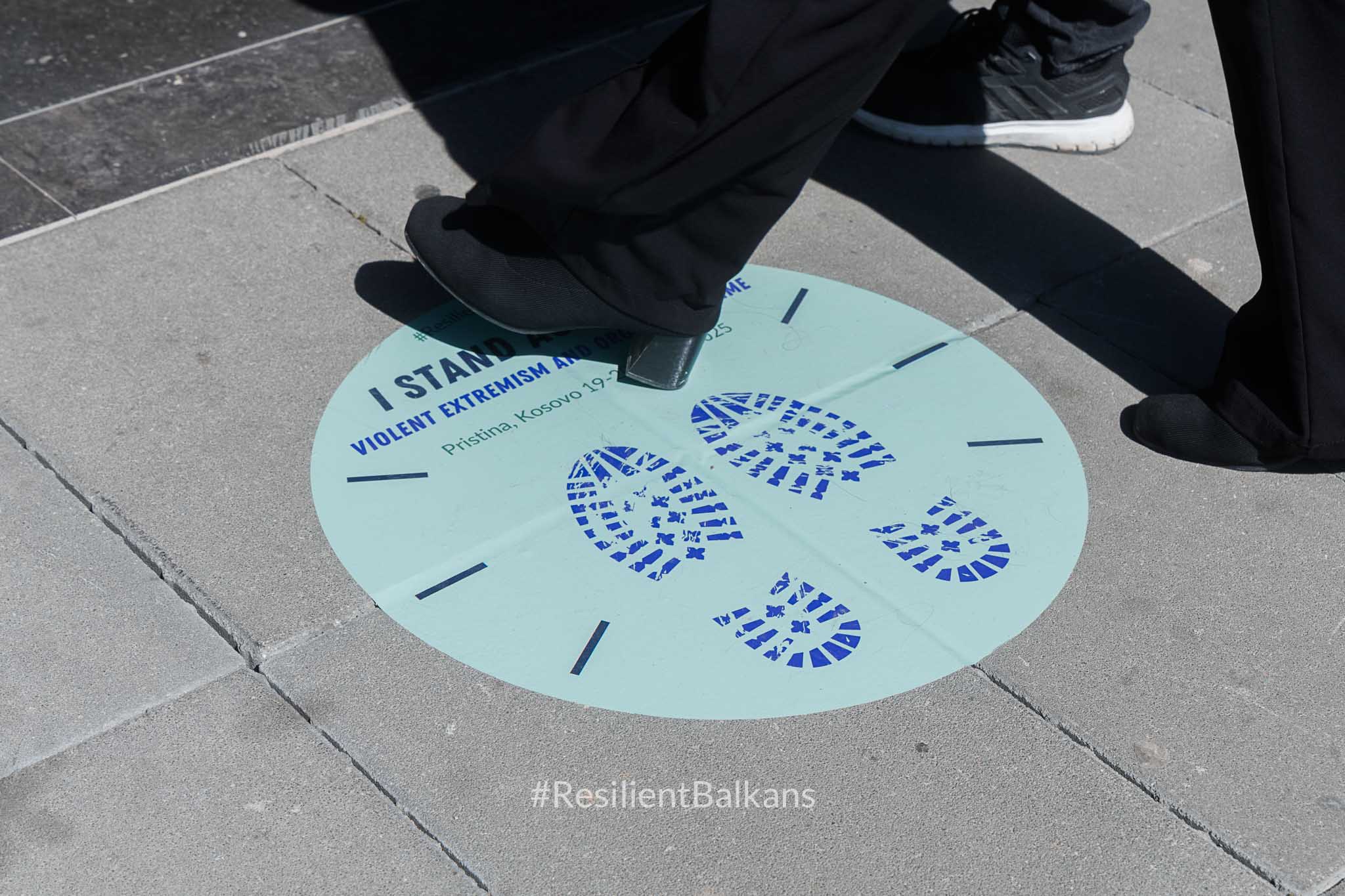
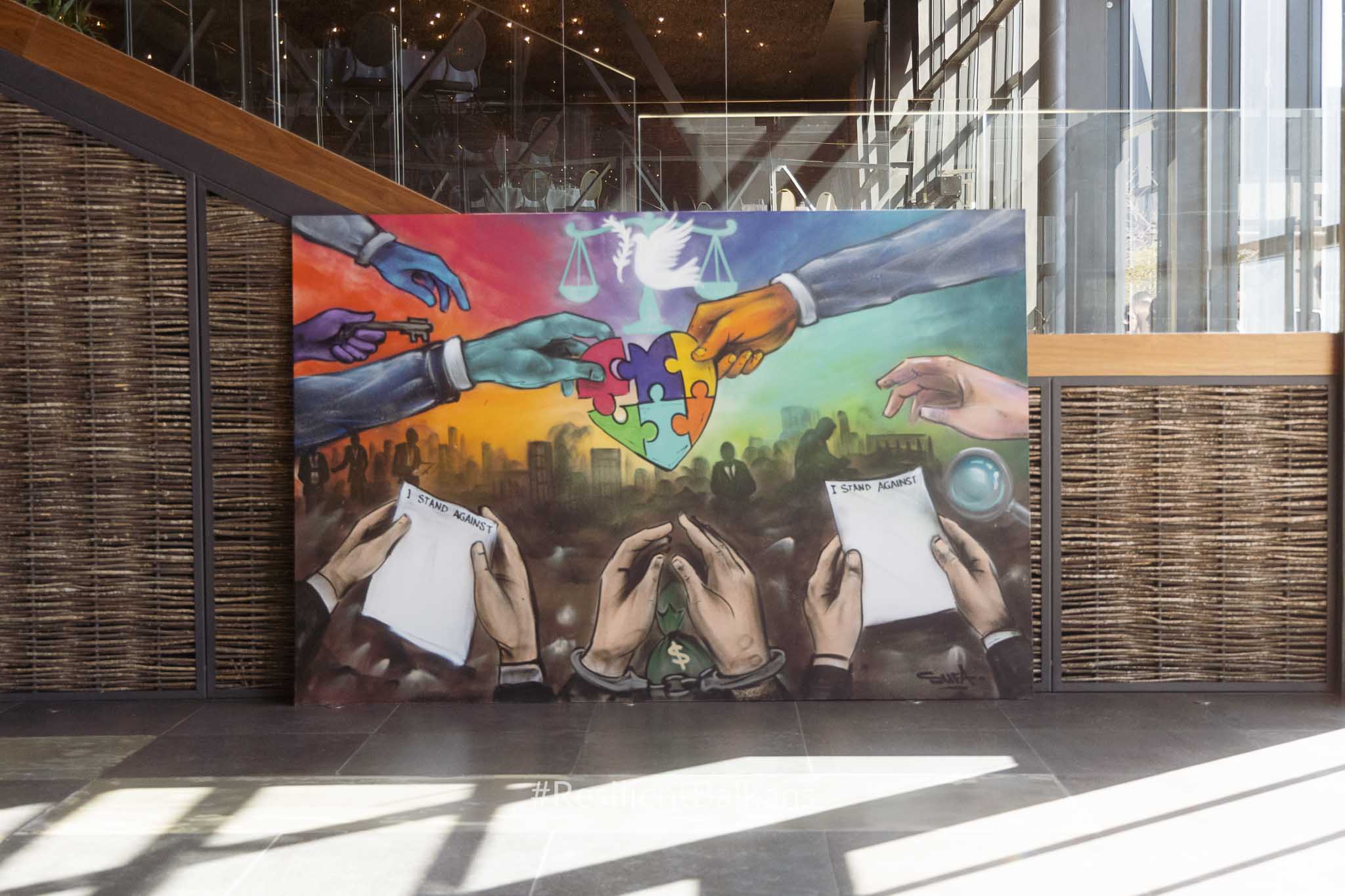
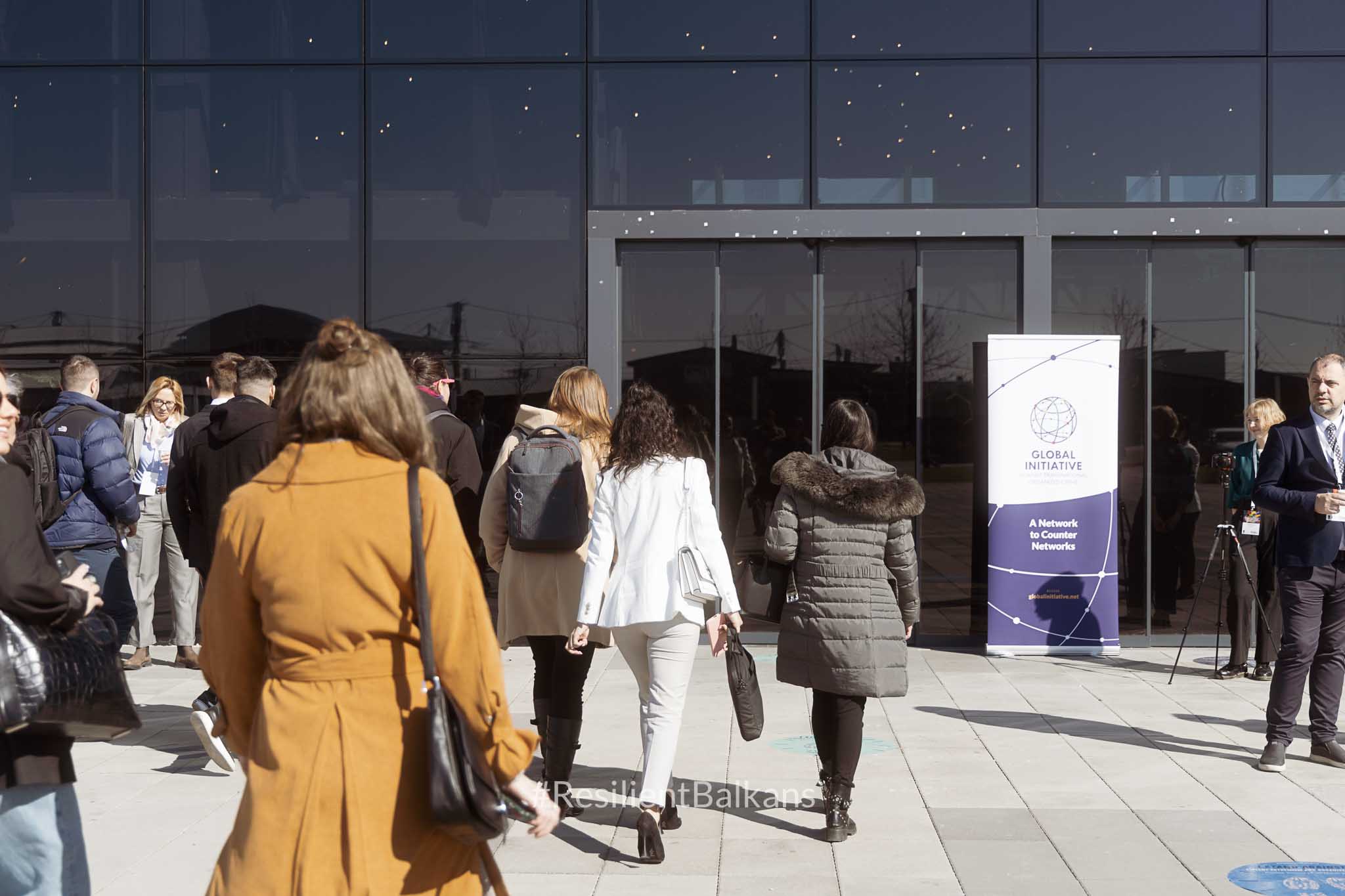
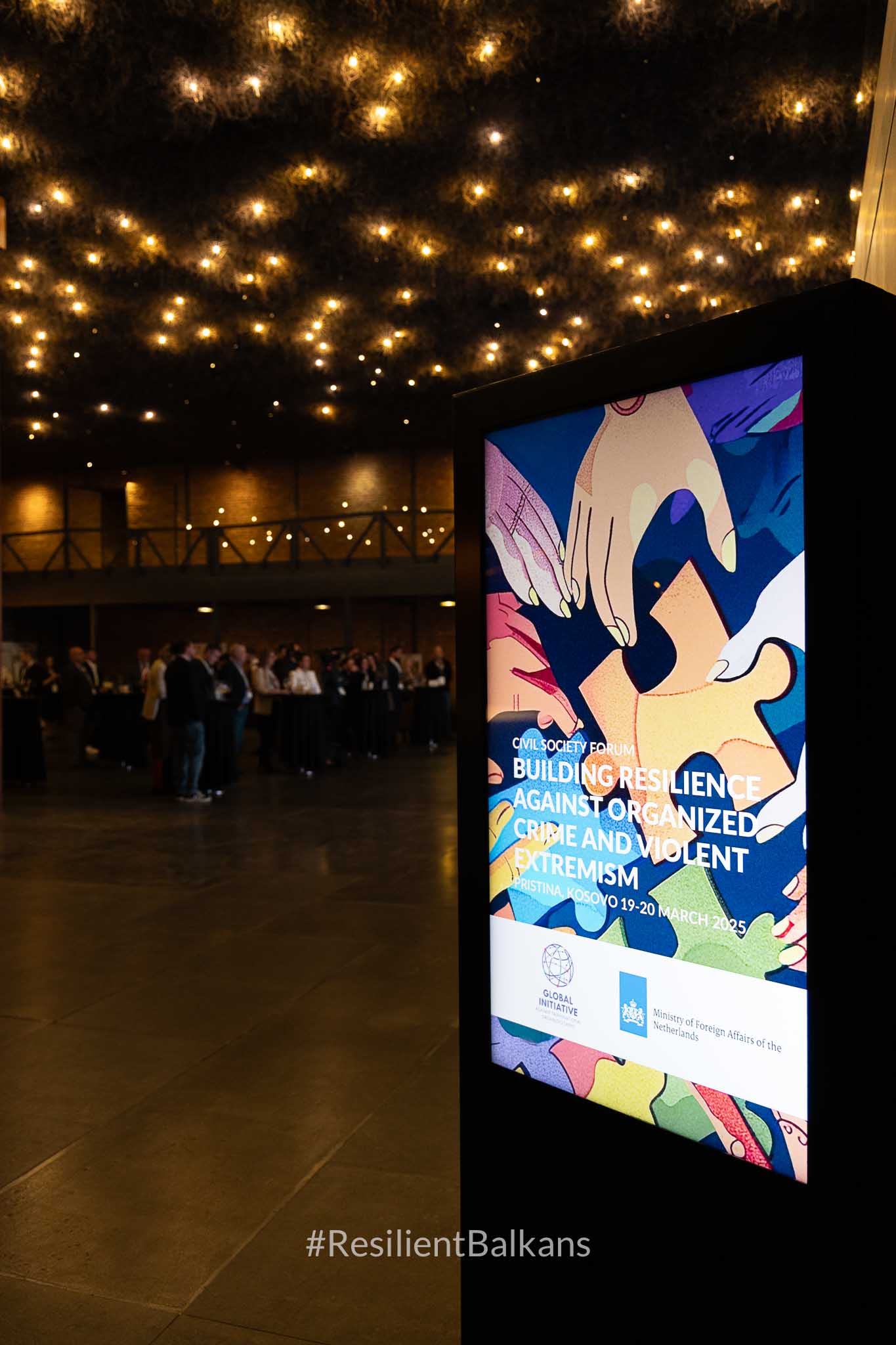
Civil Society Forum: Day 2
The forum's second day begins with a sense of purpose. As participants file in, their conversations reflect the gravity of the issues at hand. The 'I stand against organized crime and violent extremism' floor markers seem to take on a new significance, a visual reminder of the day's objectives.
The day starts with opening remarks from H.E. Karin Boven, Ambassador of the Netherlands to Kosovo, and Fatjona Mejdini. Their words set the tone for a day of intense discussion and analysis.
The first session, 'Youth talk: Voices of change,' showcases two young speakers who share powerful personal insights on the impact of violent extremism and organized crime. Their testimonies underscore the need to address root causes such as poverty, unemployment and lack of education for effective and comprehensive socio-political strategies.
Following this, Ruggero Scaturro, senior analyst at the GI-TOC, leads a workshop on understanding recruitment into criminal and extremist networks. The session delves into the complex factors that make individuals susceptible to recruitment, emphasizing the need for inclusive governance and economic opportunities for marginalized communities.
After a networking break, parallel sessions address two critical issues. Kresnik Gashi from the Balkan Investigative Reporting Network discusses rehabilitation programmes in Kosovo's prisons, while JUVENTAS, and NGO from Montenegro, leads a workshop on deconstructing the glamuorization of crime in popular music. In line with our research, these sessions stress the importance of preventing prisons from becoming breeding grounds for radicalization and the need to challenge narratives that romanticize criminal lifestyles.
In the afternoon, GI-TOC analyst Sasa Djordjevic and Ruggero Scaturro moderate a session on the nexus between football hooliganism and organized crime, highlighting the need for targeted interventions in sports communities and the complex interplay in the region between sports, identity and criminal networks. Another session urges for comprehensive approaches to address the financing of extremist activities.
The day culminates in a plenary session featuring civil society activists from the Western Balkans. Representatives from a range of organizations, including Vlora Youth Centre (Albania), Club MASA (Bosnia and Herzegovina) and Restart (Serbia), share their experiences and strategies. Their testimonies reinforce our research findings on the vital role of civil society in countering revisionist narratives and fostering dialogue to mitigate ethnic and religious tensions.
As Fatjona Mejdini delivers the closing remarks, there is a sense of determination in the room. The day's discussions highlight the challenges facing the region and showcase the innovative approaches and collaborative efforts undertaken to combat organized crime and violent extremism.
The forum concludes with a collaborative mural creation. As participants add their contributions, the artwork becomes a visual representation of the forum's key message: that through cooperation, knowledge-sharing and community engagement, positive change is possible.
The Civil Society Forum in Pristina has fostered connections, shared best practices and reinforced the importance of translating international cooperation into concrete action on the ground. As attendees leave the Klan Arena, they commit to continuing this work in their communities across the Western Balkans.
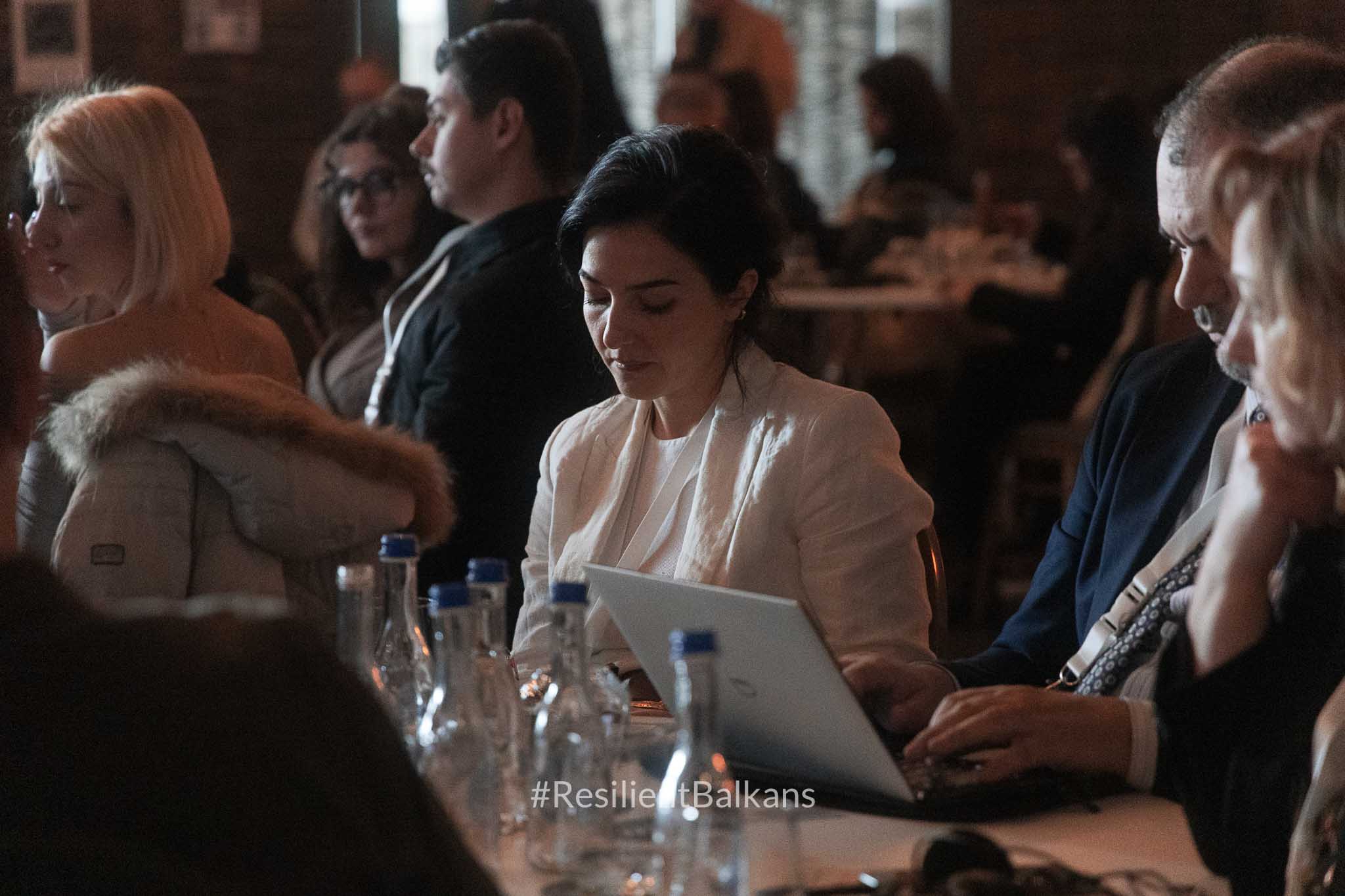
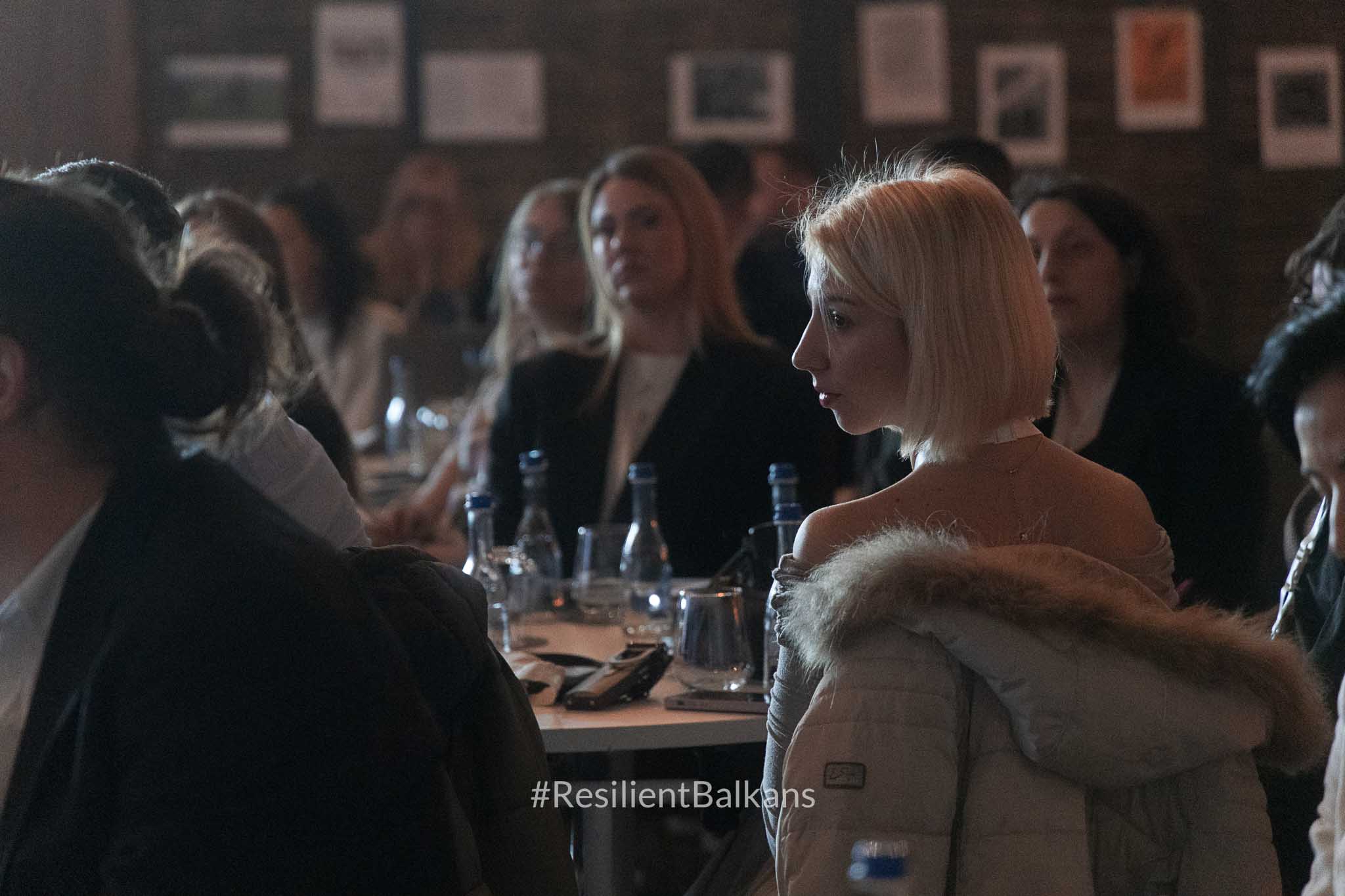
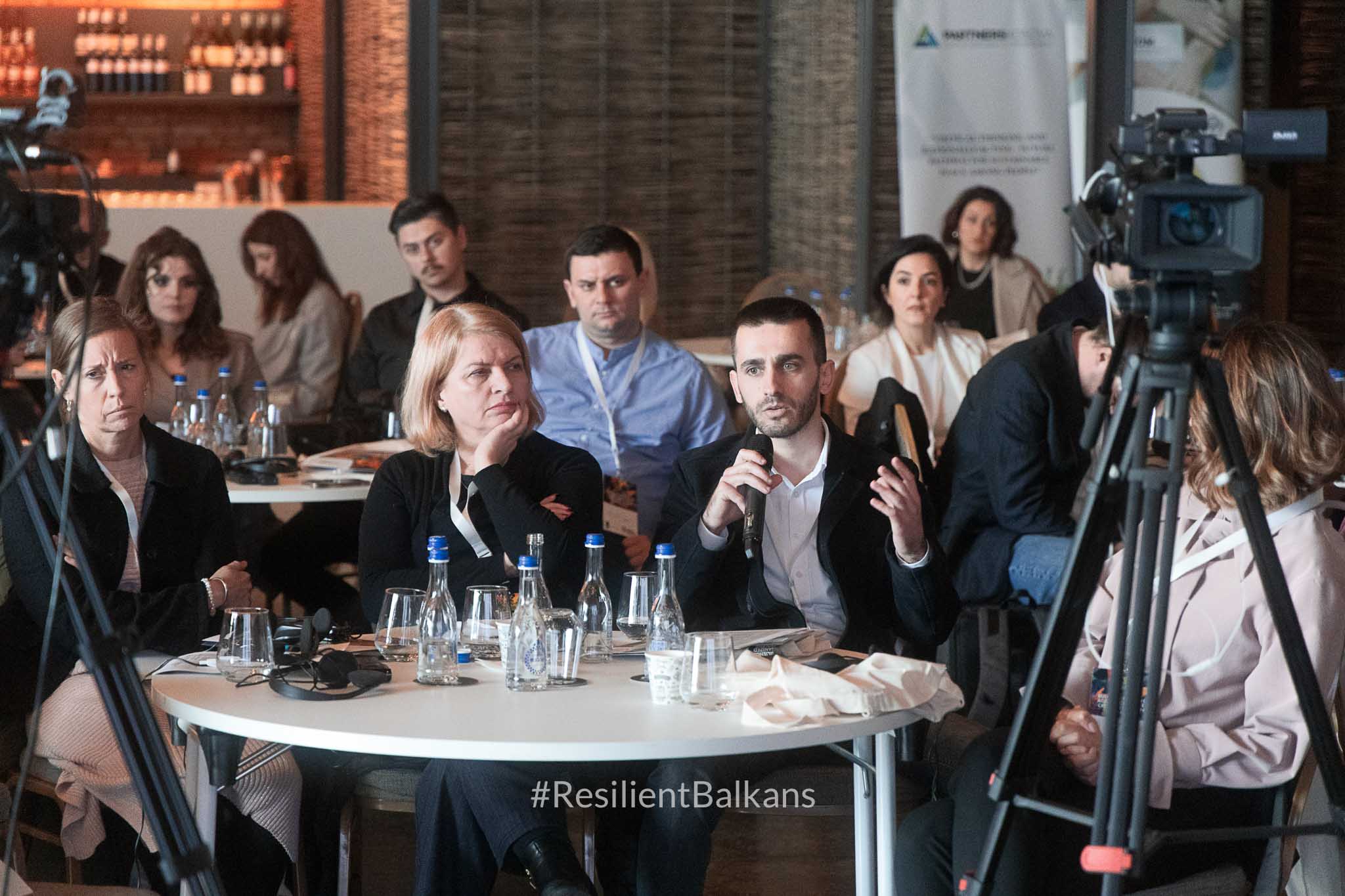
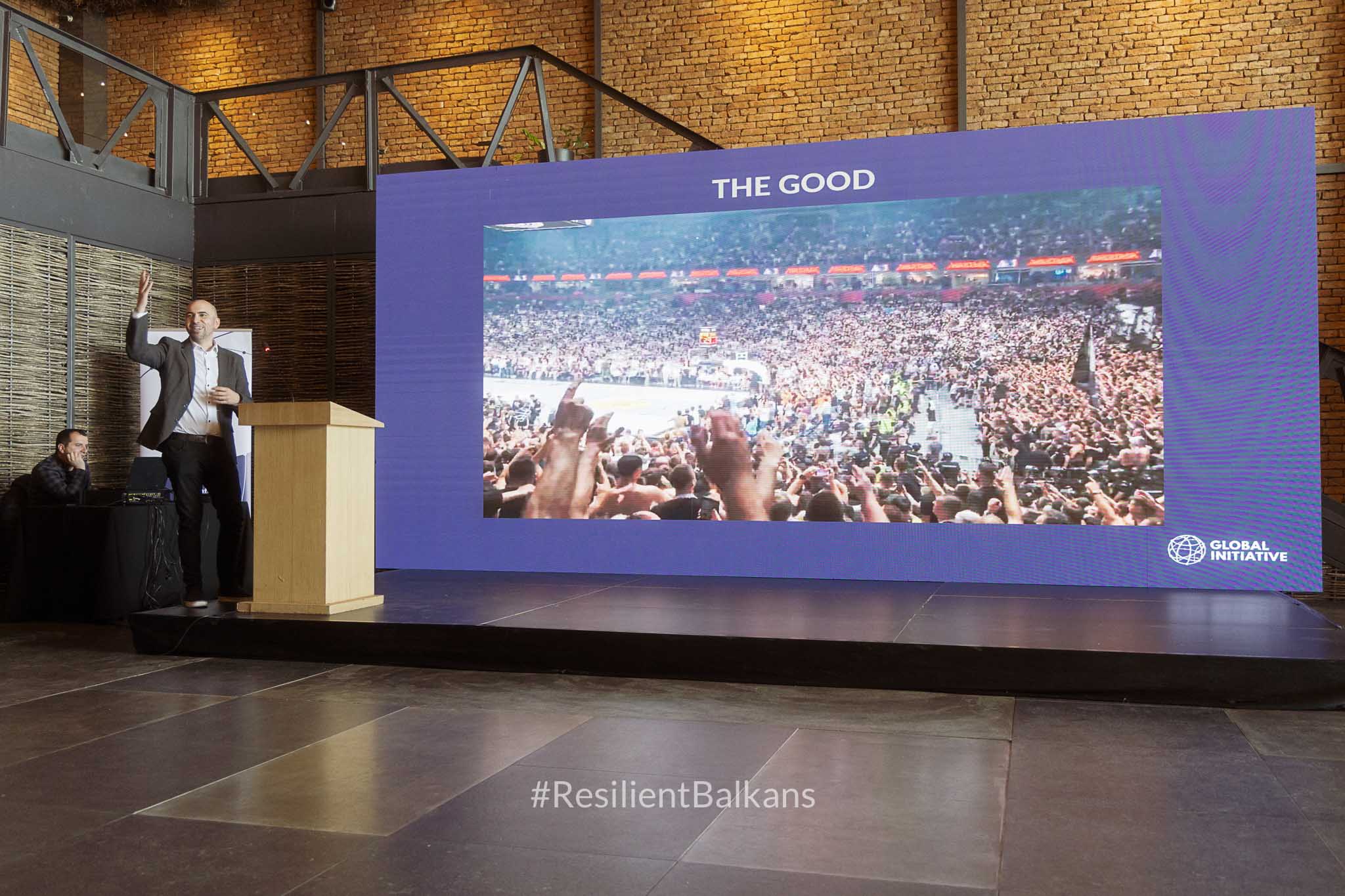
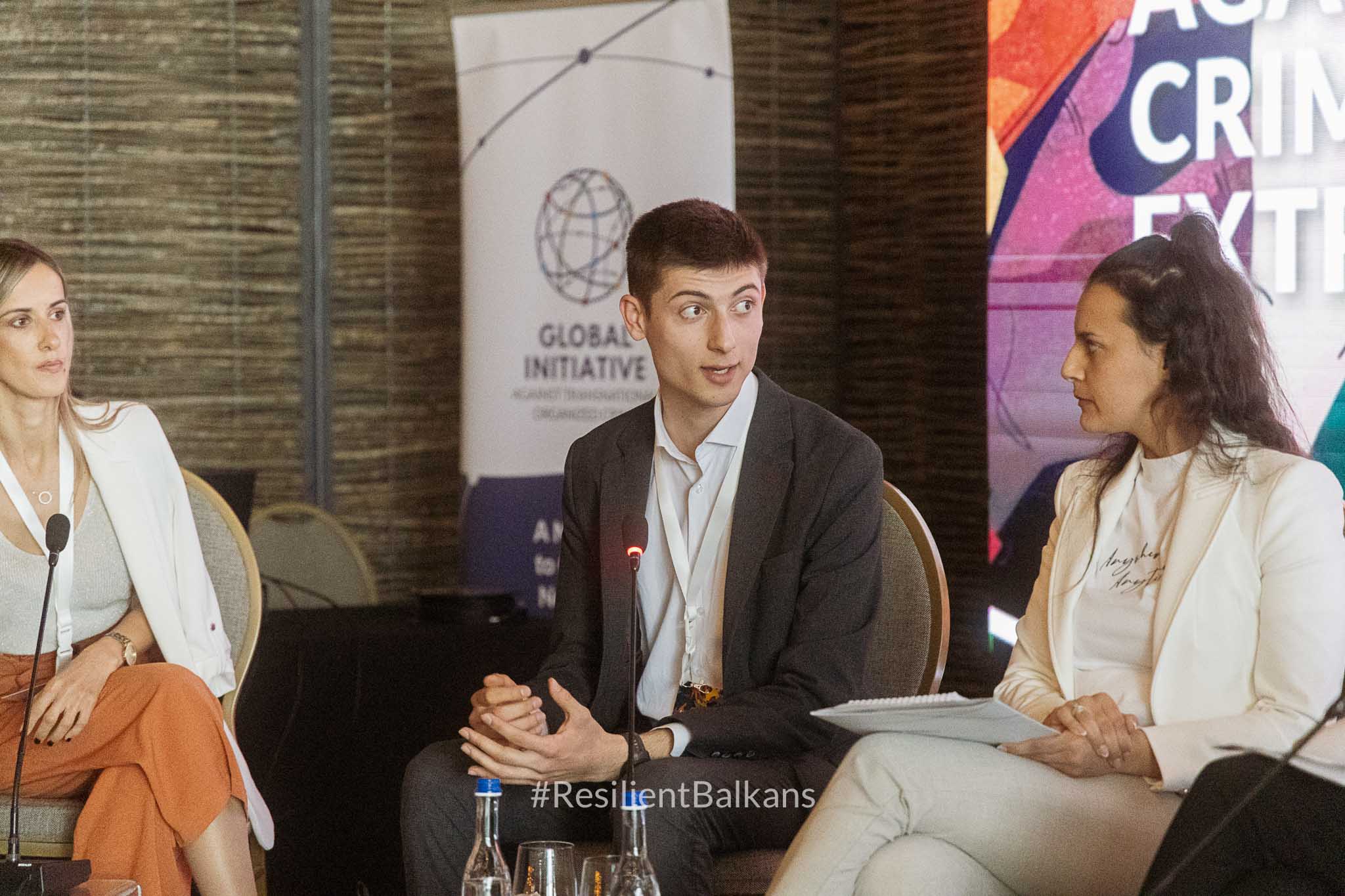
Help us spread the word!
Explore the event photo gallery to find moments that embody the spirit of the forum! Choose your favourite image and share it with your friends and followers on social media! Help us promote awareness by using the hashtag #ResilientBalkans.
Your contribution will boost the dissemination of the narratives and initiatives associated with this project. Join the campaign!
About the Global Initiative
The Global Initiative Against Transnational Organized Crime is a network of professionals working on the frontlines of the fight against the illicit economy and criminal actors. Through a network of global civil society observatories on the illicit economy, we monitor evolving trends and work to build the evidence basis for policy action, disseminate the expertise of our Network and catalyze multisectoral and holistic responses across a range of crime types. With the Global Initiative’s Resilience Fund, we support community activists and local NGOs working in areas where crime governance is critically undermining people’s safety, security and life chances.
About the Observatory of Illicit Economies in South Eastern Europe
The Observatory of Illicit Economies in South Eastern Europe is a platform that connects and empowers civil society actors in Albania, Bosnia and Herzegovina, Kosovo, Montenegro, North Macedonia and Serbia.
The Observatory aims to enable civil society to identify, analyze and map criminal trends, and their impact on illicit flows, governance, development, interethnic relations, security and the rule of law, and supports them in their monitoring of national dynamics and wider regional and international organized crime trends.
The Observatory was launched as an outcome of the 2018 Western Balkans Summit in London, a part of the Berlin Process.

